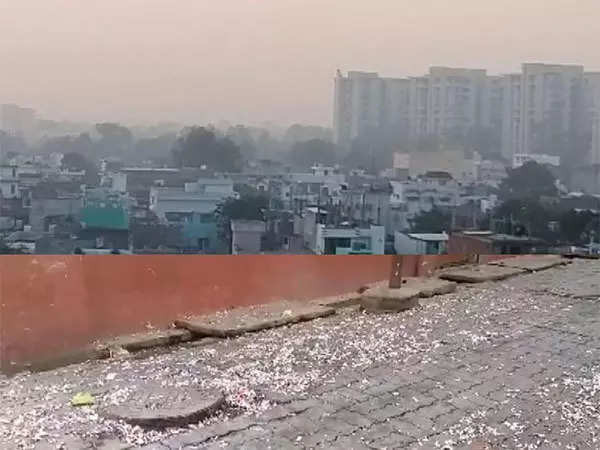

Lucknow: A day after Diwali celebrations in Lucknow, Uttar Pradesh, the city woke up to a thick blanket of smoke and haze, with poor air quality recorded in many areas. Streets were left littered with remnants of crackers, boxes of sweets, and other waste, contributing to the post-festive pollution.
As per the Central Pollution Control Board (CPCB), air quality in various parts of Lucknow, including Lalbagh and Kendriya Vidyalaya, was recorded in the “poor” category, indicating the severity of pollution. The aftermath of Diwali revelry was evident, with residents participating in the tradition of bursting crackers despite the environmental concerns.
A local resident defended the practice, stating, “If we don’t burst crackers on Deepawali, how will children know of Indian culture and tradition? How will there be excitement for the festival?”
The civic bodies reported an excess of about 50 tonnes of waste collected on the day after Diwali. Unfortunately, people often wait for municipal staff to collect the waste, leading to the burning of remnants, further contributing to air pollution.
Firecrackers, containing harmful compounds like sulphur, cadmium, mercury, and lead, release toxic fumes upon burning, causing dense smog and respiratory issues. Despite a slight decline in air pollution due to pre-Diwali rains, the levels increased post-celebrations.
Similarly, in Kanpur, Uttar Pradesh, the air quality remained compromised, with smoke, fog, and cracker fumes lingering in the atmosphere after the festivities. The national capital, Delhi, faced a similar situation, with smog enveloping the city and scattered garbage on the streets, despite a ban on fireworks.
Winter exacerbates air pollution in northern India due to factors such as dust, vehicular pollution, dry-cold weather, stubble burning, and crop residue burning after the harvest season. The dense and slow-moving cold air traps pollution, leading to prolonged periods of poor air quality.
The aftermath of Diwali highlights the ongoing challenge of managing environmental concerns during festive seasons and the need for sustainable practices to mitigate pollution’s adverse effects.